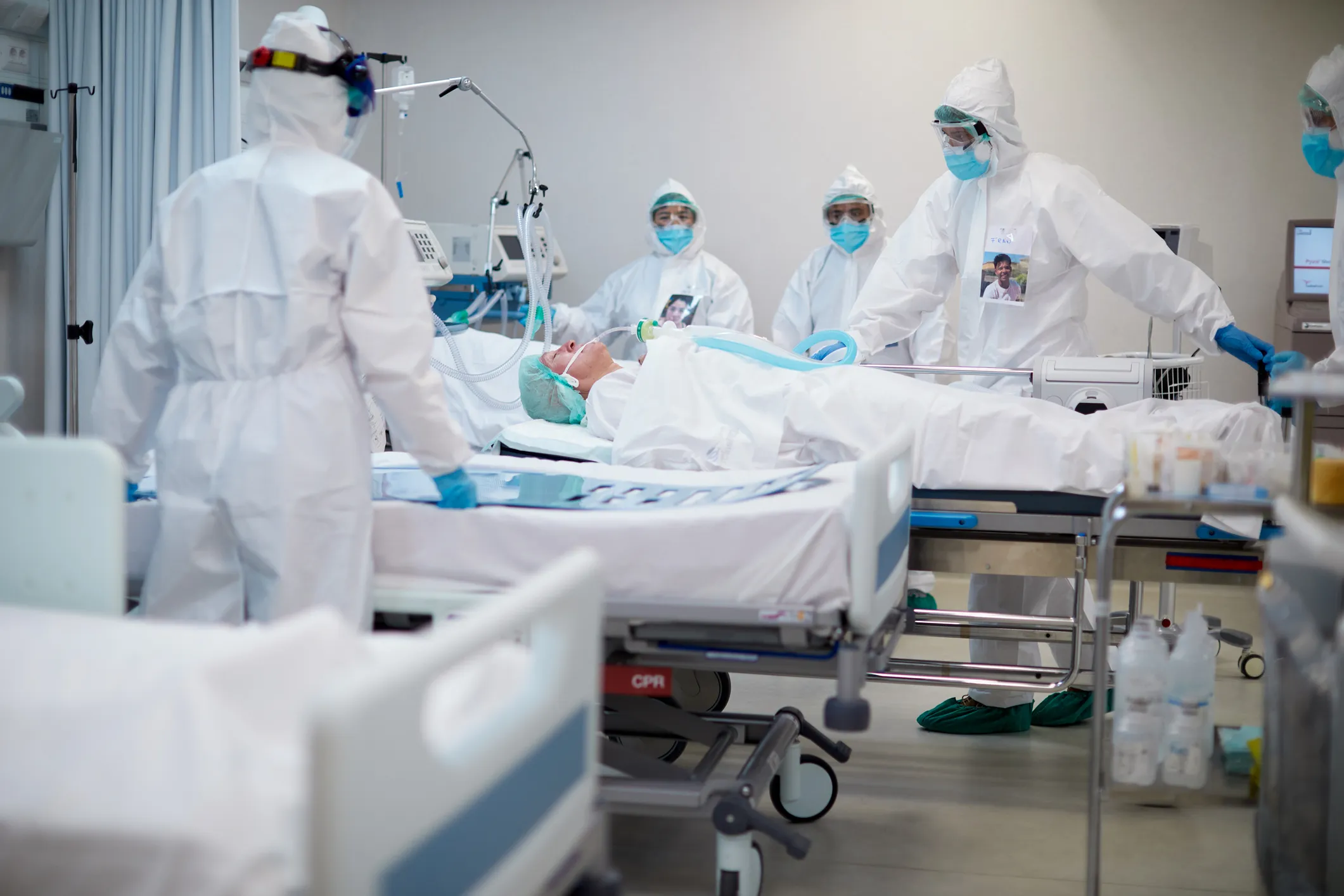
Deaths among hospitalised Covid patients dropped from 32 per cent at the start of the pandemic in March and April 2020 to 16 per cent by the end of the first wave last summer.
Analysis of some 64,000 adults in nearly 250 hospitals found a drop in deaths for all age groups, all ethnicities, for both sexes and in patients with and without underlying conditions.
Researchers found the reduction was associated with adoption of steroids as a newly proven treatment, and improvements in breathing support techniques and critical care. The team says the change was, in part, a reflection of improved clinical knowledge.
The risk of death for people admitted to hospital with Covid-19 was extremely high at around one in three at the start of the first wave, and consistently improved over subsequent months. Part of this improvement can be explained by differences in the people who were admitted to hospital, and how sick they were. Further reduction in the risk of death can be explained by improvements in care of Covid-19 patients with treatments and better use of advanced respiratory support.
Dr Annemarie Docherty
Senior Clinical Lecturer at the University of Edinburgh
Global network
The work is the latest result from ISARIC – a global network of clinicians and scientists which has been preparing to prevent disease and death from severe outbreaks since 2012.
The ISARIC Coronavirus Clinical Characterisation Consortium study is led by researchers from Universities of Edinburgh and Liverpool and Imperial College London.
The study has been published in The Lancet Respiratory Medicine and is principally funded by the National Institute for Health Research (NIHR), the Medical Research Council and the Chief Scientist Office of Scotland.
We now understand better how changes in patient characteristics and improvement in medical care have led to improved survival in UK hospitals. The discovery of what works and as importantly what does not work was only possible because of prepared research capacity that was put in place by the ISARIC investigators.
Professor Calum Semple
Professor of Child Health and Outbreak Medicine at the University of Liverpool
This research provides evidence that frontline clinicians and healthcare professionals learnt and adapted to Covid-19 to improve patient care. Many of those healthcare professionals also facilitated research into treatments, such as dexamethasone, which was vital to the improvement in mortality described in this paper. These improvements are testament to the hard work of many.
Professor Chris Whitty
Chief Medical Officer and co-lead of the NIHR
Related links
Journal article published in The Lancet Respiratory Medicine

